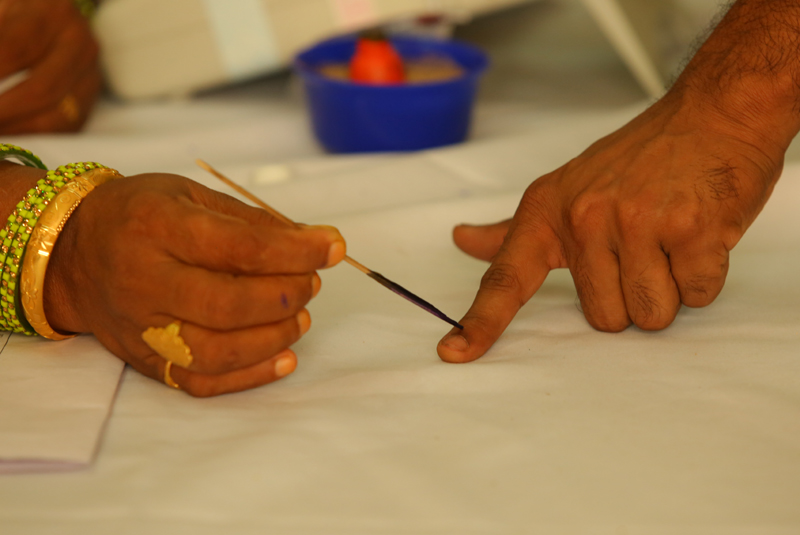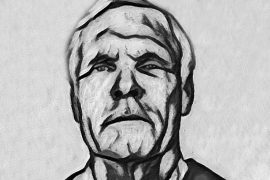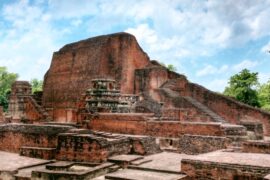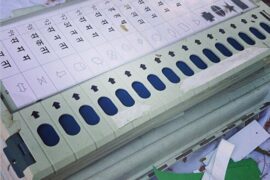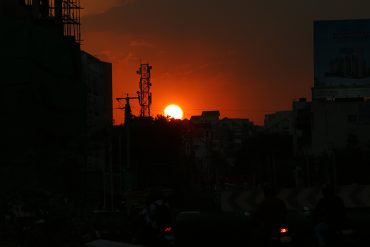The so-called ‘festival of democracy’ is being celebrated in a country that goes with the inappropriate sobriquet: the ‘world’s largest democracy.’ People queue outside polling booths and cast their votes, believing that the politicians they elect will improve their lives. They have been doing so for the past seventy-five years.
Many of those who vote do so believing that the so-called ‘world’s largest democracy’ – ‘rambunctious,’ ‘messy,’ and ‘chaotic’ as it may be – with its governance structures in tow, works for their betterment. Some even claim that it is a ‘beacon of hope’ for the rest of the world.
It has become fashionable to show photos of ink-marked fingers on social media to tell the world that they have exercised their ‘democratic right.’ Celebrated actors and politicians share photos to encourage people to vote; ostensibly, it is their ‘duty’ or ‘moral obligation’ to encourage people to do so.
In a season filled with exaggerated claims of political benevolence and good governance, it is time to go beyond rhetoric and ask some basic questions about the quality of the so-called ‘world’s largest democracy.’
Let’s begin with basic questions. Should Members of Parliament (MP) be criminals? The obvious answer is – NO. But about forty per cent of MPs elected in 2019 have criminal cases registered against them, out of which twenty-five per cent have declared serious criminal cases under charges of murder, attempt to murder, kidnapping and crimes against women.
Pragya Thakur, a Member of Parliament (ostensibly a ‘Hindu ascetic,’ known for eulogising Gandhi’s murderer as a ‘hero’), was accused of plotting a bomb attack and charged with terrorism offences; she won a massive victory in the country’s general election. Contesting from Bhopal for Prime Minister Narendra Modi’s Bharatiya Janata Party (BJP), she made history by becoming the first person accused of terrorism to be fielded by a major political party in India.
Politicians who publicly called for killing people have been elected as Members of Parliament. Some of them have been appointed as Union Ministers – particularly after airing hate speeches. For instance, Anurag Thakur, a Member of Parliament, asked his followers to ‘shoot the traitors of the nation’ (Remember the slogan Desh Ke Gaddaroin ko, Goli maro saalon ko?). The Prime Minister of India promptly elevated him to the role of Union Minister of Information and Broadcasting.
Take another example. Ajay Singh Bisht, alias Yogi Adityanath – who provoked people to kill with statements such as ‘If [Muslims] take one Hindu girl, we’ll take 100 Muslim girls. If they kill one Hindu, we’ll kill 100 Muslims’ – was first elected a Member of Parliament. His supporters have called for digging up Muslim women from their graves and raping them. The man who built a political career out of digging Muslim graves and spewing hate speech was quickly appointed as the Chief Minister of India’s largest state, Uttar Pradesh.
These are just some of the many examples of Indians electing murderous maniacs to lord over them. It is not surprising that this is the case. In 2014, Indians queued outside polling booths to vote for a man accused of orchestrating a pogrom against Indian Muslims when he was the Chief Minister of Gujarat. He called himself ‘Vikas Purush,’ (man of development) masqueraded as ‘Vishwa Guru’ (leader of the world), called himself a champion of democracy and became the Prime Minister of the ‘world’s largest democracy.’
Such behaviour is not party-specific. If the BJP has orchestrated a pogrom against Muslims in Gujarat in 2002, the Congress Party has orchestrated a pogrom against the Sikhs in 1984, massacring over 2800 Sikhs. Rajiv Gandhi, then Prime Minister, justified the carnage, saying:
We must remember Indiraji. We must remember why her assassination happened. We must remember who could be the people behind this. When Indira’s assassination happened, there were riots in the country. We know that the hearts of the Indian people were full of anger and that for a few days people felt India was shaking. When a big tree falls, the earth shakes.
Jagdish Tytler and other Congress leaders who were charged with inciting the massacre are out on bail.
In both cases, innocent Indian citizens were mercilessly murdered – people who, at some point in their lives, would have queued outside polling booths to exercise their ‘democratic right to vote.’ Put simply, the leaders people elected, and the political parties they voted into power actively aided and abetted the murder of fellow Indian Citizens. Unsurprisingly, they got away with murder. Is this a democracy of the criminals, by the criminals? Aren’t the people culpable for voting such criminals into power?
Let’s look at another indicator of democracy: Corruption.
It is well-known to everyone who lives in India that corruption is endemic. It is the norm de rigueur. Whatever one wants to do – from starting a business to getting a birth/death certificate – one needs to grease the palms of those in power. And the chain of command is very well orchestrated. Ergo, scams are normalised – all done in cahoots with the high and mighty politicians whom the citizens have queued up to vote.
The list is almost endless: the Coal Gate Scam, the Harshad Mehta Scam, the 2G Scam, the Vyapam Scam, the Khetan Parekh Scam, the Railway Bribery Scam, and the Satyam Scam, are some among countless others. How else can one explain that Revanth Reddy, a man jailed in the Cash for Vote Scam, became the Chief Minister of a state?
Before Narendra Modi became Prime Minister, he made tall claims about rooting out corruption. Did he deliver on his promises? No.
Far from removing corruption, the Modi government found innovative ways of legalising corruption. The electoral bond scam is a case in point. It stands as a case study of legalised political extortion. Political parties in power have extorted more than 8000 crores (more than a billion dollars) from businessmen. Narendra Modi himself has raised the role of big businesses in political funding in his recent poll campaign.
The Adani share price scam, which came out because of the Hindenberg Report, was just turned over without much consequence to a businessman known to be close to the Prime Minister. The Securities and Exchange Board of India (SEBI) is dragging its feet and is yet to thoroughly investigate the matter.
It is common knowledge that politics is big business in India. It is a high-risk game with high returns. Politicians aiming to be Parliamentarians spend enormous amounts of money to win elections. It is little wonder that India’s Parliamentarians are some of the wealthiest people in the world.
The net worth of politicians is increasing by the day. A large majority of India’s Members of Parliament have assets worth more than ₹100 crores. Some have declared them while others stash them away without declaring their assets. If politicians are getting rich, what about the people, citizens who so enthusiastically queue up to vote?
The Global Hunger Index (GHI), a tool for comprehensively measuring and tracking hunger at global, regional, and national levels, says Hunger in India is a severe problem. India ranked 111 out of 125 countries in the Global Hunger Index-2023, reporting the highest child-wasting rate at 18.7 per cent. India ranked 107 out of 121 countries in 2022.
While India’s politicians are billionaires, the people who celebrate the ‘festival of democracy’ are hungry, without access to the basics needed to live a dignified life.
Unemployment in India is at an all-time high. Recently, an International Labour Organisation claimed that eighty-three per cent of jobless Indians are youth.
So what exactly are people celebrating in this so-called ‘festival of democracy’? Are they celebrating the fact that they have successfully exalted murderous, corrupt, self-serving genocidal maniacs to power? Or are they celebrating the fact that they been consistently taken for a ride by criminals who masquerade as leaders?
-30-
Copyright©Madras Courier, All Rights Reserved. You may share using our article tools. Please don't cut articles from madrascourier.com and redistribute by email, post to the web, mobile phone or social media.Please send in your feed back and comments to [email protected]

